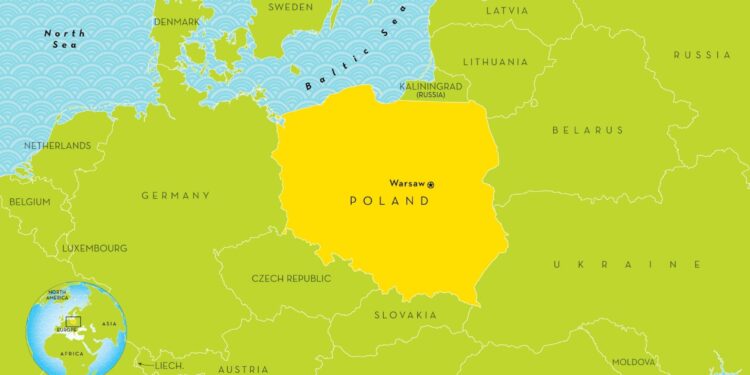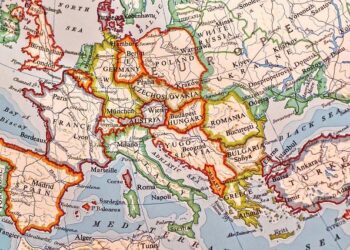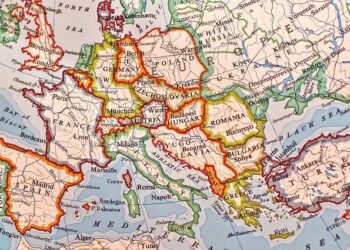Poland has issued a stark warning to Russian President Vladimir Putin, declaring that he risks arrest should he attempt to enter Polish airspace en route to any proposed peace talks. The announcement, made in Brussels, underscores rising tensions between Warsaw and Moscow amid ongoing conflicts and diplomatic efforts. Poland’s firm stance signals a broader geopolitical warning as European capitals watch closely for any developments in negotiations involving Russia.
Poland Issues Stark Warning to Putin Over Airspace Violation Amid Ongoing Tensions
Polish authorities have taken an unprecedented stance against Russian President Vladimir Putin, making it clear that any unauthorized entry into Polish airspace will trigger immediate legal consequences. This warning comes amidst escalating tensions in Eastern Europe, where airspace violations have become a flashpoint for international disputes. Warsaw’s strict position underlines its commitment to sovereignty and respect for international borders, signaling zero tolerance for any breach aimed at circumventing diplomatic protocols related to ongoing peace discussions.
Officials emphasized several key points regarding the warning issued to Moscow:
- Legal Accountability: Putin could face arrest upon landing or flying over Polish territory without prior clearance.
- Security Measures: Polish air defense systems are on heightened alert to intercept unauthorized flights.
- Diplomatic Signals: The move serves as a broader message to international actors about Poland’s firm stance against aggressive maneuvers.
| Aspect | Poland’s Position | Possible Russian Reaction |
|---|---|---|
| Airspace Monitoring | 24/7 surveillance and rapid military response | Increased diplomatic protests |
| Legal Enforcement | Calls for immediate arrest under international law | Denial of violations and claims of provocation |
| Peace Talks Access | Only permitted with full Polish authorization | Potential shift to alternative routes or venues |
Implications for Russia’s Diplomatic Efforts as Warsaw Signals Potential Arrest Risk
The recent warning from Poland introduces a significant hurdle for Moscow’s ongoing diplomatic initiatives. With Warsaw explicitly threatening to detain Vladimir Putin should he attempt to transit through Polish airspace, the feasibility of Russia engaging in peace talks in Europe is cast into doubt. This stance not only challenges established diplomatic protocols but also signals a growing assertiveness among Eastern European nations wary of Russia’s intentions. Consequently, Russian officials may be forced to reconsider their travel routes and preferred negotiation venues, potentially isolating Moscow from key diplomatic platforms.
The implications extend beyond mere logistical constraints, as the threat effectively politicizes airspace management, transforming it into a strategic bargaining tool. Key consequences include:
- Heightened diplomatic tensions: Increased strain on Russia-Poland relations, complicating broader European security dialogues.
- Operational challenges: Necessity for Russia to seek alternative, possibly less accessible, aviation corridors for peace discussions.
- Precedent setting: Other nations may emulate Poland’s hardline approach, further shrinking diplomatic maneuverability for Russian officials.
| Aspect | Potential Impact | Stakeholders Affected |
|---|---|---|
| Airspace Restrictions | Rerouted diplomacy flights | Russian government, neighboring states |
| Legal Risks | Indictment possibilities for Russian officials | Putin’s administration, international law bodies |
| Negotiation Dynamics | Reduced engagement opportunities | EU diplomatic corps, peace mediators |
Experts Call for Strengthened EU Airspace Security Measures to Prevent Escalation
Security analysts and aviation experts across the European Union have emphasized the urgent need to bolster airspace defenses to deter unauthorized incursions-especially amid increasing tensions stemming from geopolitical conflicts in Eastern Europe. With Poland’s recent warning that President Putin risks arrest should he attempt to transit Polish airspace en route to any peace negotiations, officials are highlighting gaps in current radar and interception protocols that could be exploited. Enhanced coordination among EU member states, alongside investment in rapid response air patrols and advanced surveillance technologies, are central to these calls for action.
Proposals tabled by security think tanks recommend a multi-layered approach to airspace security, including:
- Real-time intelligence sharing between military and civilian aviation agencies
- Deployment of interceptor aircraft ready to scramble at short notice
- Implementation of AI-driven threat detection to identify suspicious flight patterns
- Strengthening legal frameworks to facilitate immediate consequences for breaches
The growing consensus is that these measures are vital not only to uphold national sovereignty but also to prevent scenarios that could escalate diplomatic crises into open conflict.
| Measure | Benefit | Status |
|---|---|---|
| Radar Upgrade | Improved detection range | Under Review |
| Interceptor Deployment | Faster response times | Planned |
| AI Threat Detection | 24/7 monitoring | Prototype |
| Legal Frameworks | Clear arrest protocols | Drafted |
Key Takeaways
As tensions continue to mount, Poland’s firm stance underscores the deep divisions surrounding any potential peace negotiations involving Russia. By threatening legal action against President Vladimir Putin should he violate its airspace, Warsaw sends a clear message of its resolve to uphold international law and assert its sovereignty. This development adds another layer of complexity to diplomatic efforts in Brussels, where the future of regional security remains uncertain. Observers will be closely watching how these warnings influence the dynamics of upcoming peace talks and the broader geopolitical landscape.
















